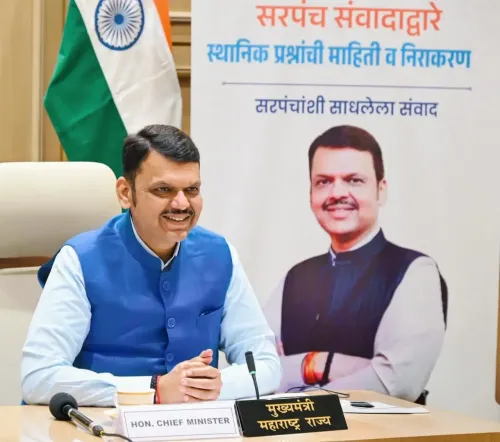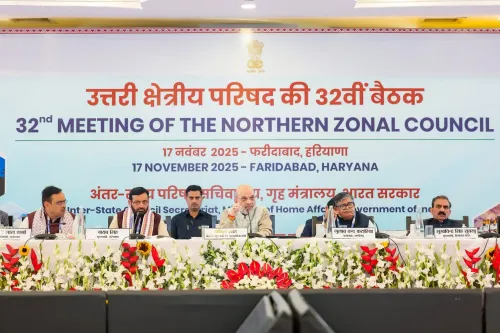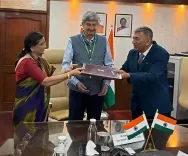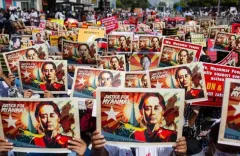What vision and goals did Mohan Bhagwat outline for RSS?
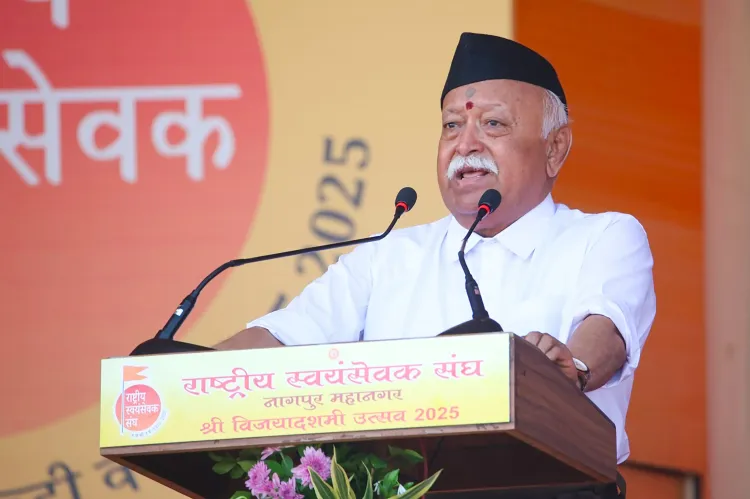
Synopsis
Key Takeaways
- Social transformation is essential for Bharat's progress.
- Role models can inspire societal change.
- Unity in diversity is crucial for national harmony.
- Sangh Shakhas nurture individual and collective values.
- Promoting family values and civic duties strengthens society.
Nagpur, Oct 2 (NationPress) During the centenary celebrations of the Rashtriya Swayamsevak Sangh (RSS), Sarsanghachalak Mohan Bhagwat on Thursday articulated the organization's vision and aspirations in molding the character of our nation. He emphasized the crucial role of cultivating ‘role models’ within society, who can inspire and motivate others to contribute to the nation's advancement.
In his Vijayadashmi address at the historic Reshimbagh grounds in Nagpur, Bhagwat highlighted the active involvement of Swayamsevaks in various social dimensions and their collaboration with numerous individuals committed to societal betterment.
He presented seven key objectives for the RSS and Swayamsevaks moving forward:
Bharat's resurgence
Bhagwat noted that the resurgence of Bharat is gaining traction, yet the current policies and frameworks present challenges. He stated, "We have made progress, but sudden changes are not feasible. Long-term, we require gradual shifts to navigate the challenges we face now and in the future."
He emphasized the need to devise a successful development model that reflects our holistic perspective and showcases it globally.
Creating an ideal model of growth
According to Bhagwat, establishing an ideal model of the nation for the world is not solely the system's responsibility. He highlighted that systemic structures have limited potential for transformation. "The inspiration and capacity to make such changes ultimately stem from the societal will. Therefore, social awareness and shifts in societal conduct are essential for effecting change. Transformation in behavior does not arise from speeches or texts. We must foster active social awareness, and those driving this change need to embody it as living examples," he stated.
He further asserted, "At all levels, we need individuals who can serve as role models—dedicated to society, embodying transparency and selflessness, and treating the entire society as their own through their conduct. We require local leadership that can inspire society as role models while coexisting with them."
He added that social transformation through character development and systemic change is the right path to bring about global change. "This has been the collective experience of Swayamsevaks," he remarked.
Social transformation
Bhagwat stated that every society has a system for fostering such individuals, but it is susceptible to manipulation due to various factors including foreign invasions. Thus, society must be re-established in a manner appropriate for contemporary times, within our homes, educational systems, and various societal dimensions.
Citing Sangh Shakha as the ideal model for this change, he noted, "We must cultivate individuals capable of executing this work. Even after mentally accepting this concept, actual implementation necessitates changing habits in thought, speech, and action. A structured approach is essential for this."
"The Shakha nurtures individual and collective qualities and strives to foster a favorable environment for fundamental human values and solidarity within society, while actively engaging in social activities," he added.
Social unity
Bhagwat identified social unity as the cornerstone of any nation's progress. He remarked that since its inception, Bharat has faced challenges arising from differences in languages, religions, lifestyles, and cuisines due to geographic diversity, caste, and sub-caste. He encouraged that our ‘distinct identities’ should not lead to societal divisions.
"Despite our unique identities, we are all integral parts of a larger society. We must acknowledge that this broader identity supersedes everything else. Each individual has their own beliefs, icons, and places of worship, and we should ensure respect for these in thought, word, and action," he emphasized.
He firmly advised against any form of violence, stating that hooliganism and violence are unacceptable as they lead to social unrest. Additionally, he urged the conscientious members of society and the younger generation to remain vigilant and organized, ready to intervene when necessary.
Strengthening 'Bharatiya' culture
Bhagwat remarked that 'Bharatiya' culture is a unique aspect of Bharat, characterized by its inclusiveness and teaching us to respect and embrace all forms of diversity.
"Rashtriyata (nationalist spirit) is adhering to our Bharatiya Sanskriti. This Hindu Rashtriyata unites us while respecting all diversities. We do not perceive the notion of a ‘nation state’. States rise and fall, but Rashtra remains eternal. We must never lose sight of this foundation of our unity," he concluded.
Making Bharat prosperous
Bhagwat called upon society to strive for the prosperity of Bharat through hard work and dedication. "The Hindu society is the custodian of the noble idea of ‘Vasudhaiva Kutumbakam’. Thus, it is the duty of the Hindu community to ensure Bharat's prosperity and position it as a significant contributor to the global community. The Sangh has been working to unite the Hindu society, which, through its collective strength, safeguarding its Dharma, can provide a new direction to the world, leading to Bharat's prosperity," he stated.
"An organized society can independently fulfill all its responsibilities. No external efforts will be required," he noted.
Building individual and national character
Bhagwat asserted that to realize our aspirations of making Bharat a superpower, both individual and national character must be fortified. He highlighted that Sangh Shakhas offer a clear understanding of our national identity and pride, which are instilled in individuals through daily activities.
"During this centenary year, the Sangh will aim to ensure that its 'Vyakti Nirman' (character building) initiatives span the nation and that the Panch Parivartan program, intended to drive gradual changes in social conduct, is embraced by all sections of society through the examples set by Swayamsevaks," Bhagwat concluded.
He underscored the importance of social harmony, preservation of family values, environmental stewardship, self-reliance, and adherence to legal, civic, and constitutional responsibilities as five essential values individuals and families should adopt.



